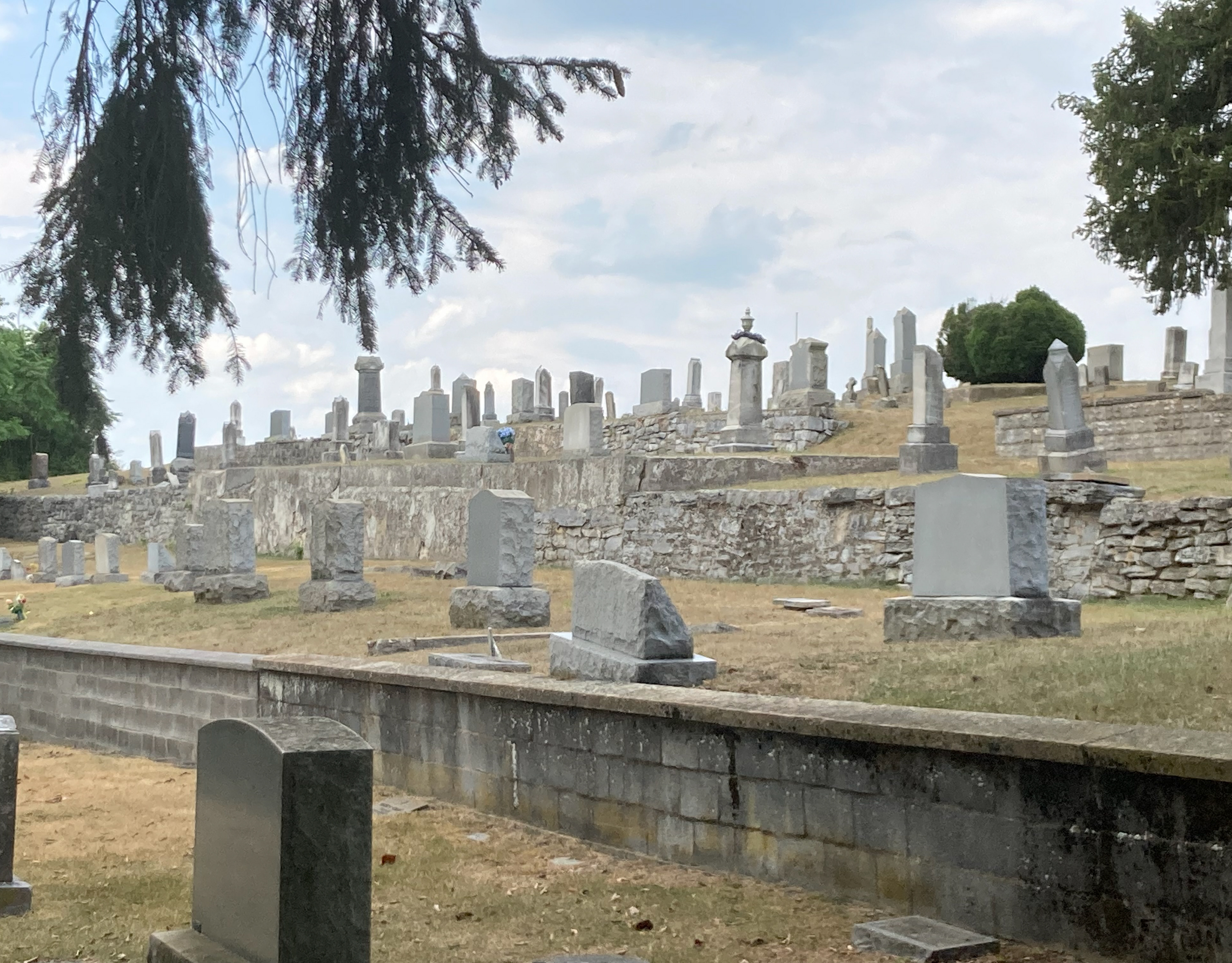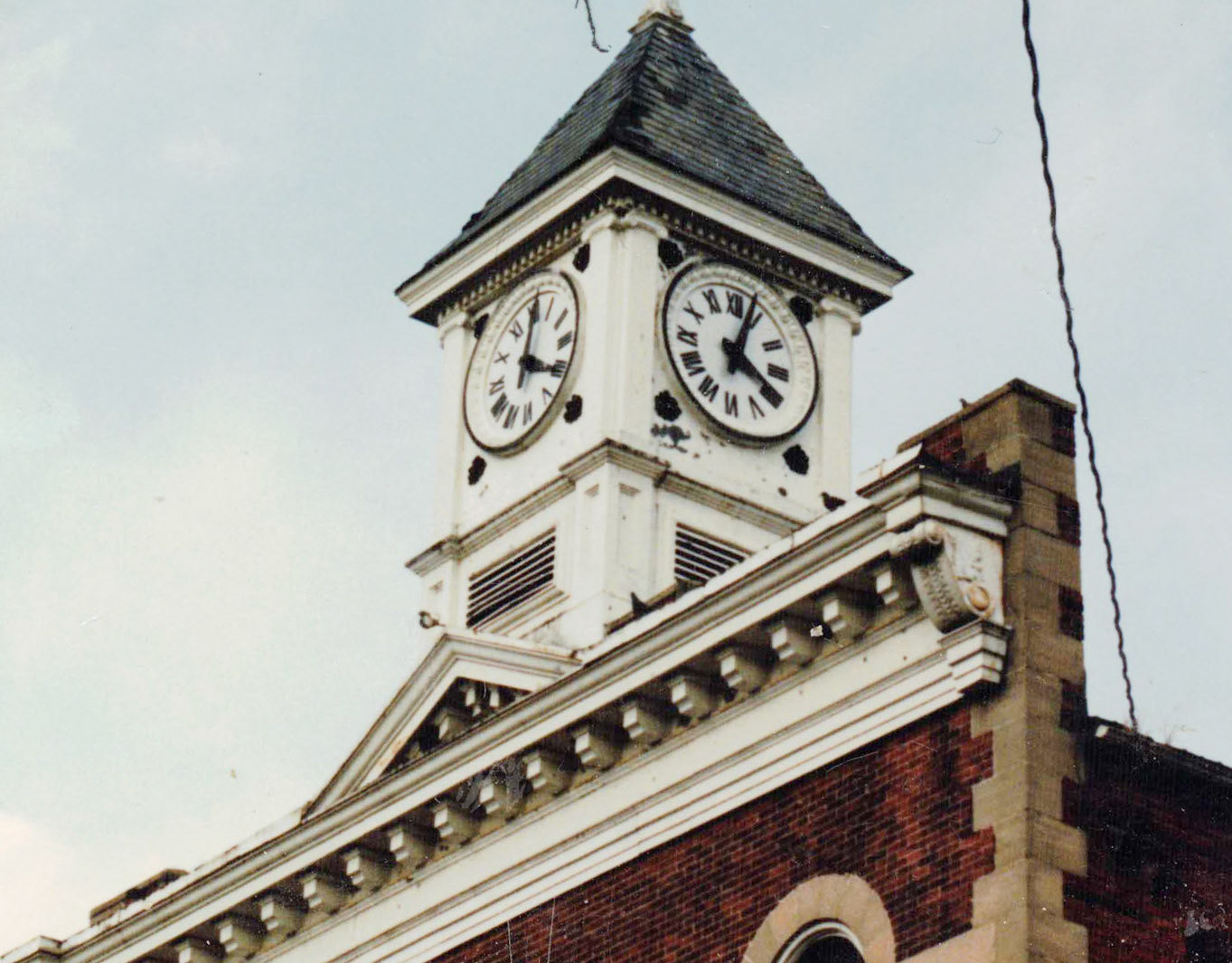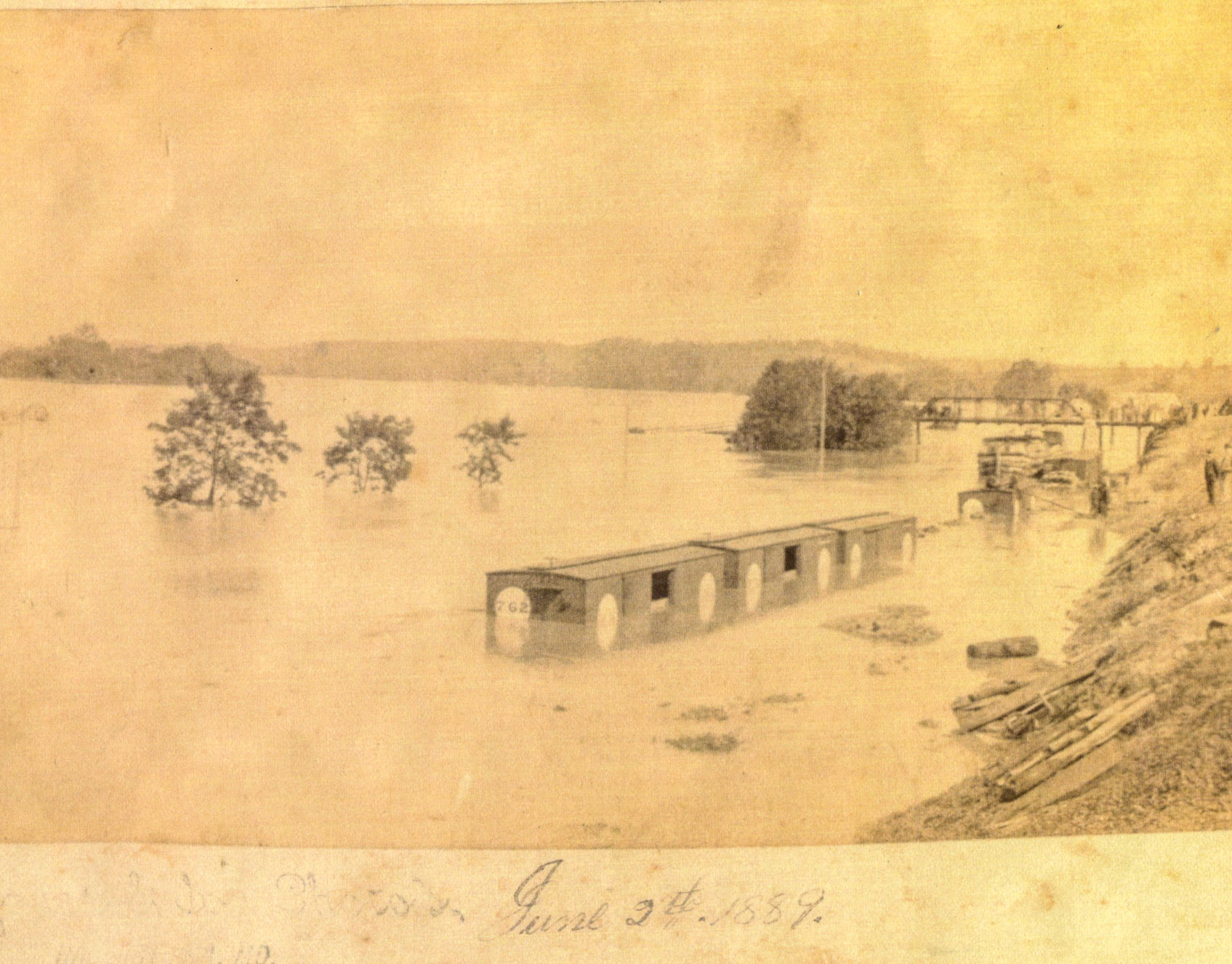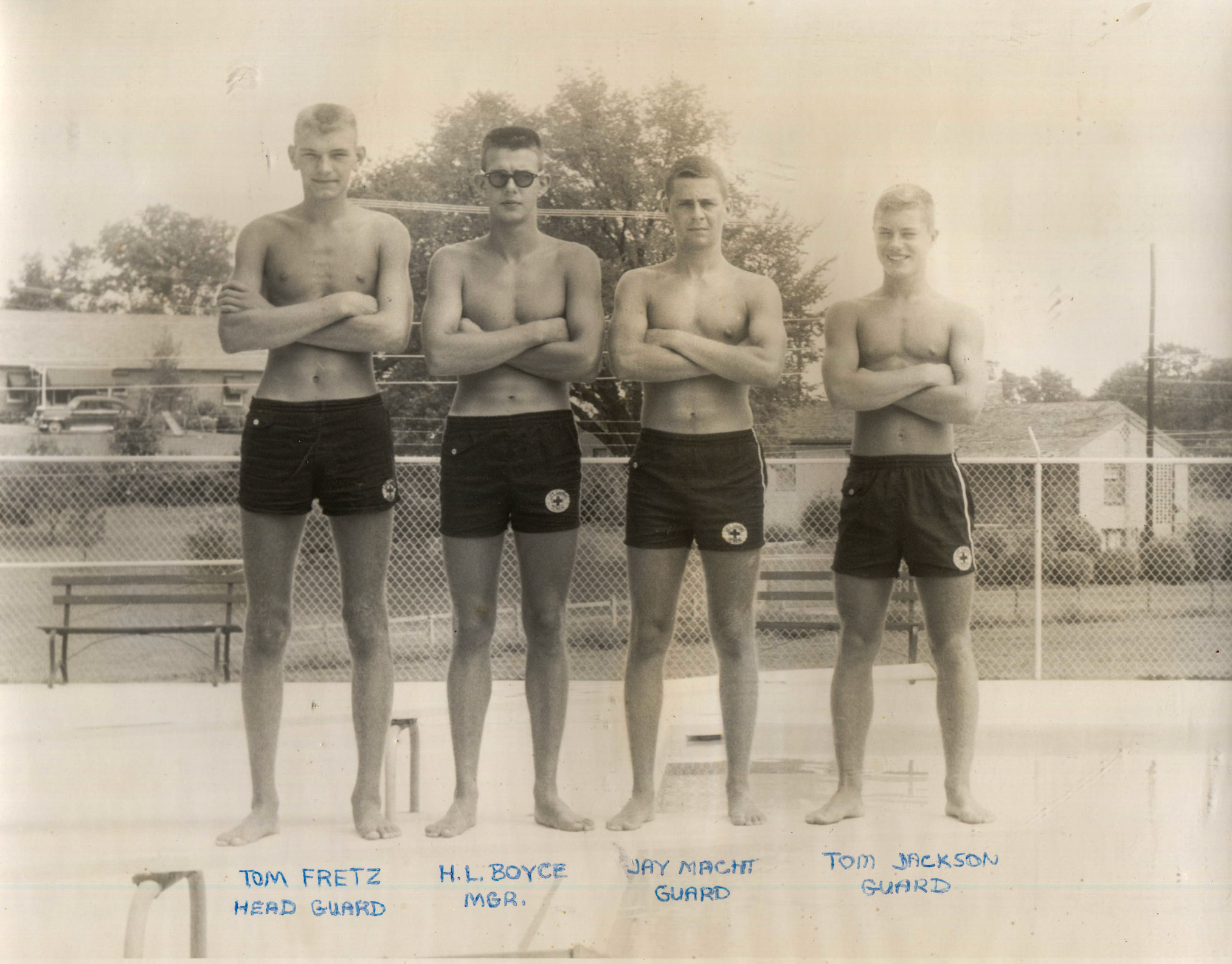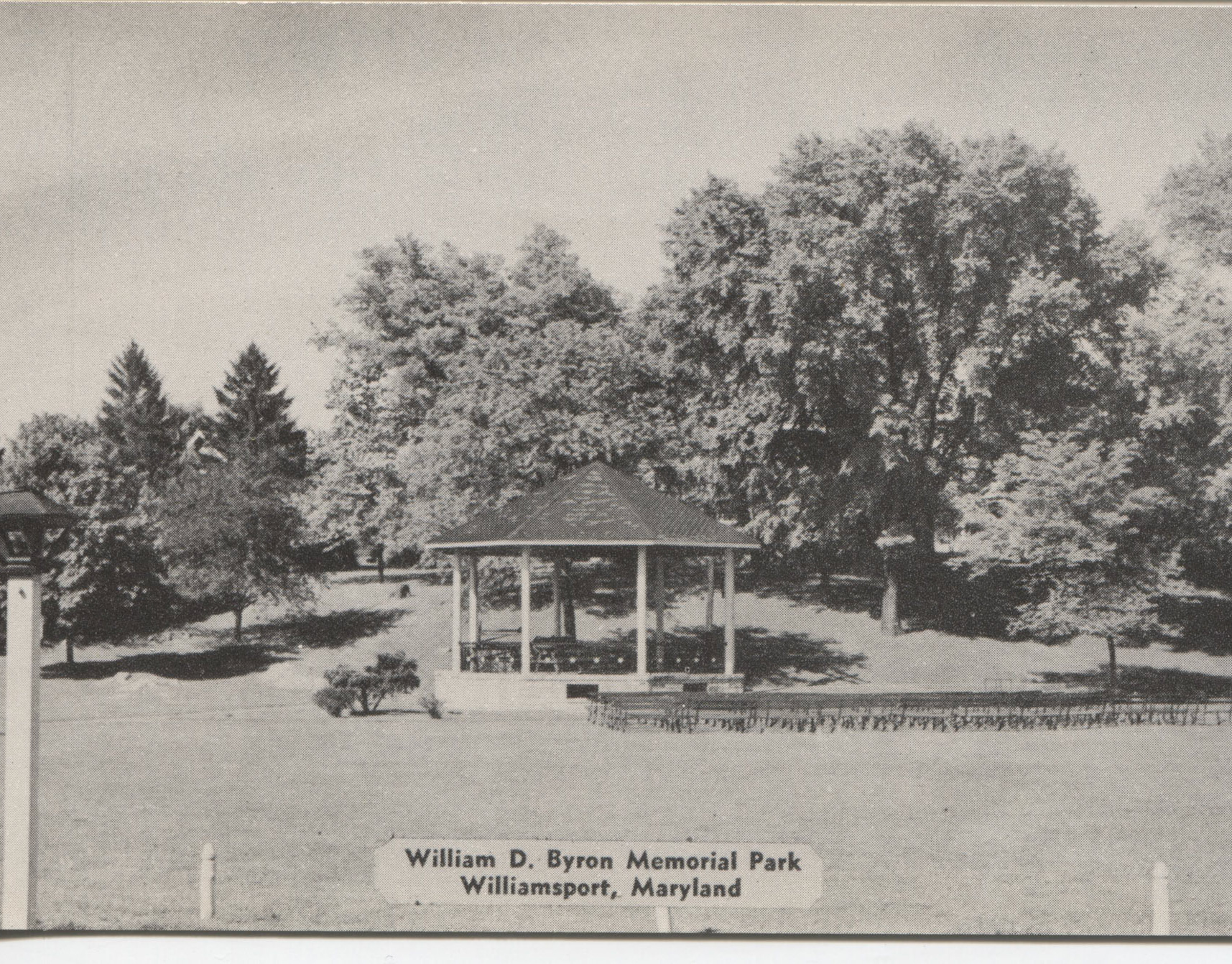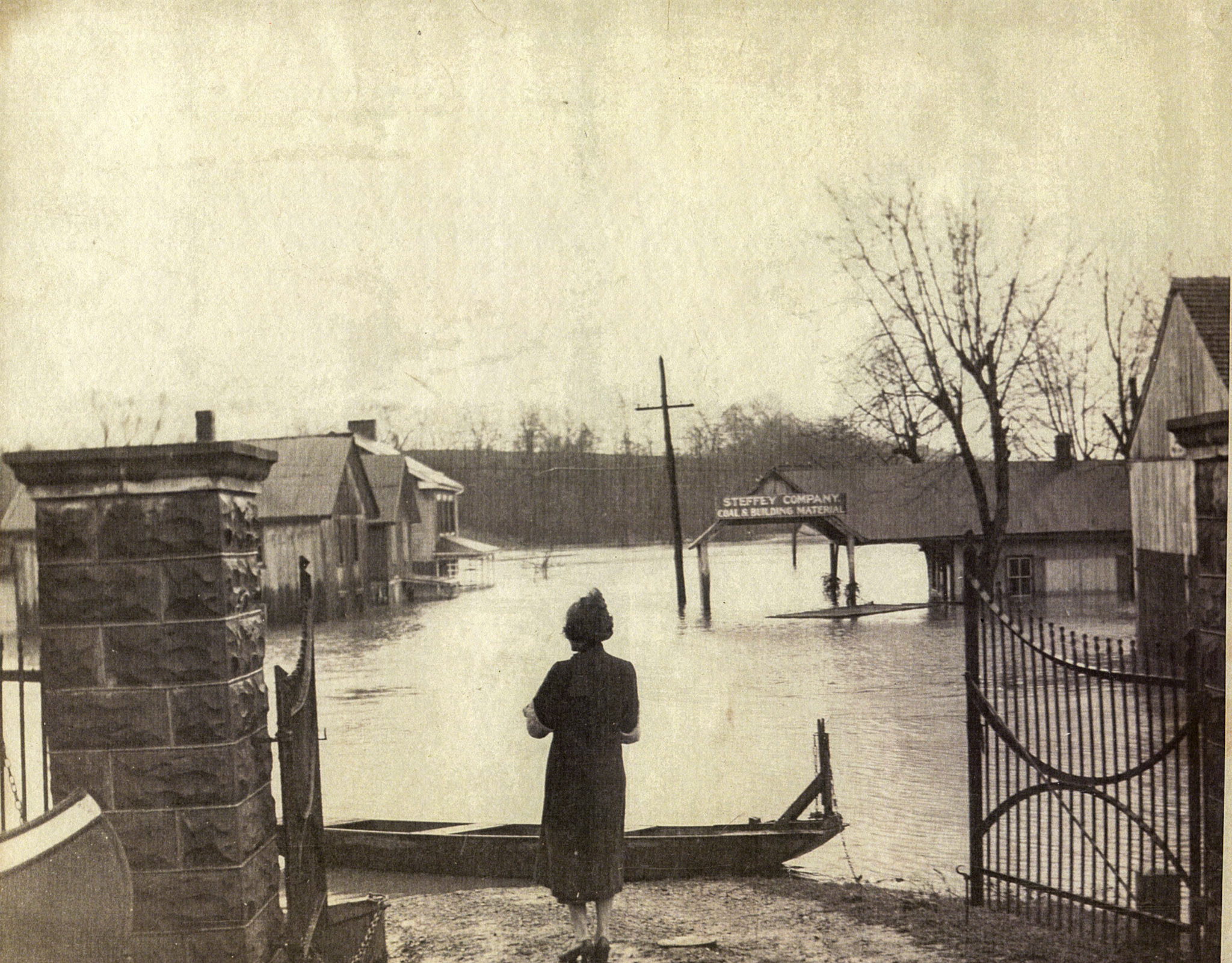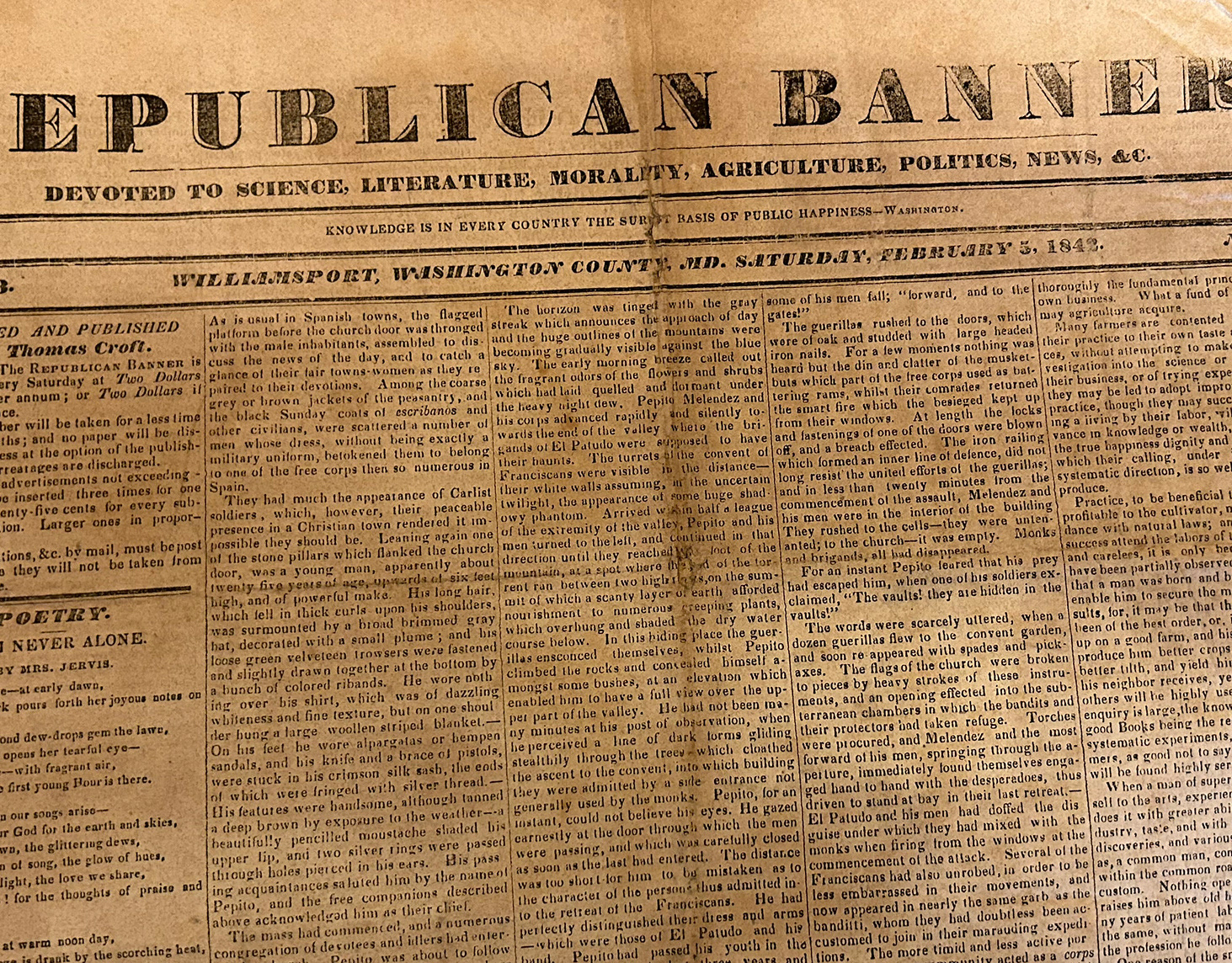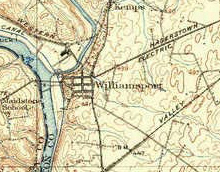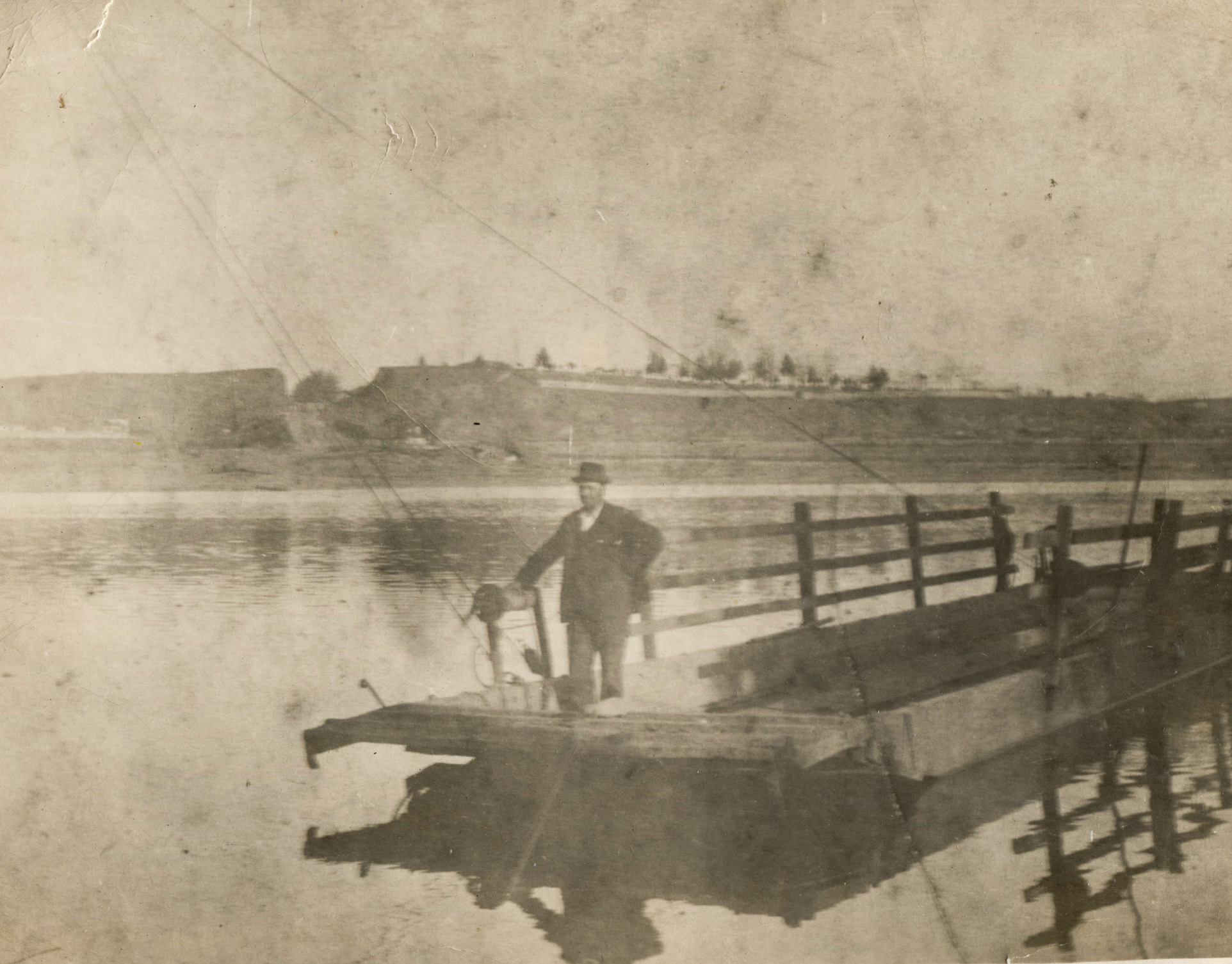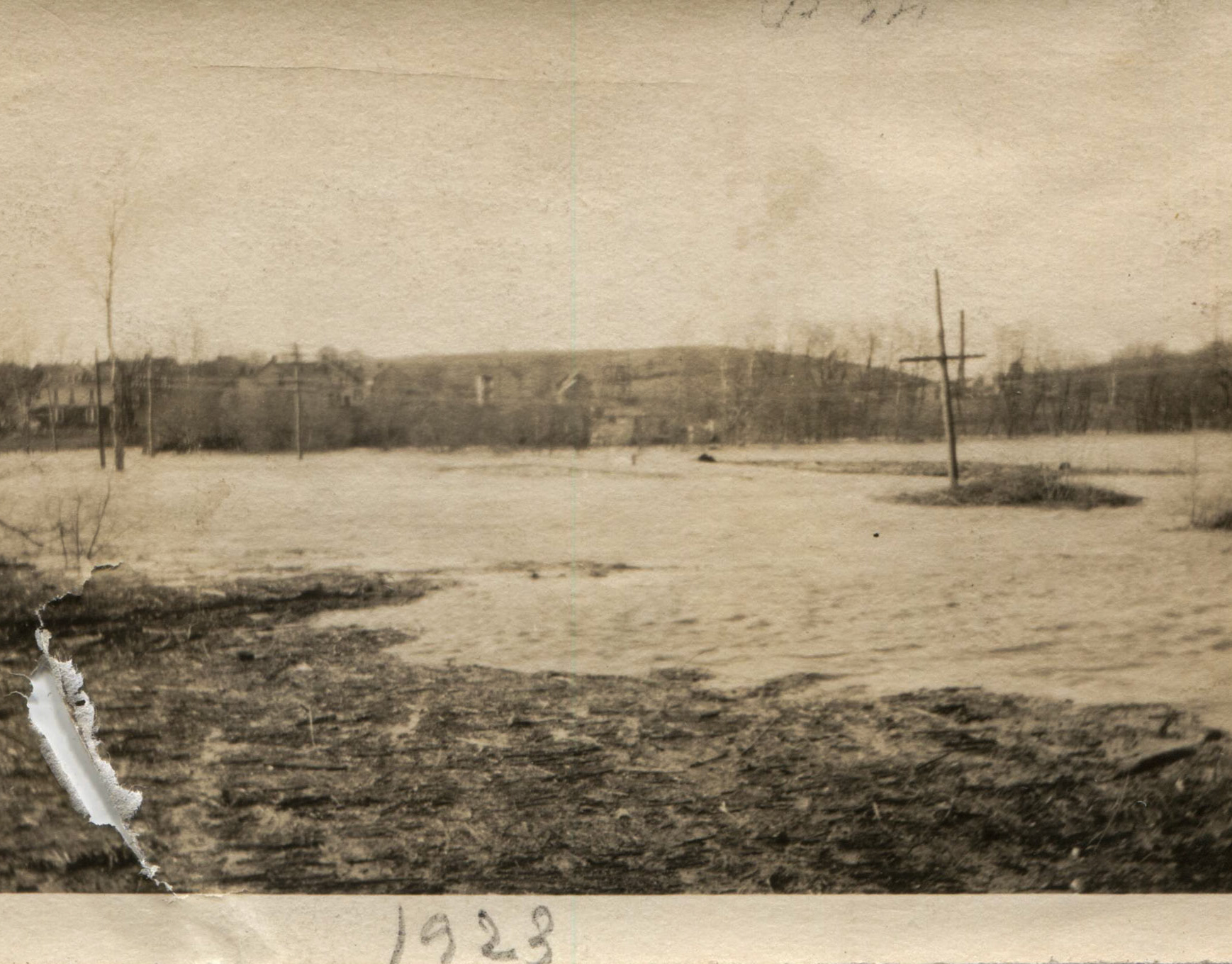Williamsport was fortunate to have survived the Civil War relatively unscathed. That doesn't mean there wasn't plenty of action in a town that lies on the Potomac River dividing line the dividing north and the south. As a major port on the C & O Canal, the Union Army vigorously defended the town. It was decidedly a town divided in sentiments.
One of the first actions at Williamsport was the death of 23-year-old DeWitt Clinton Rench in June of 1861 on Conococheague Street in front of present-day City Hall. Ready to report for duty in the Confederate army with Stonewall Jackson, Rench was shot and killed by those with opposing views. His father, Andrew Rench (b 1790), was a major landowner in the county, owning 13 farms plus 1,500 acres near Richmond, Va. The Rench home still stands along Shaffer Road, south of Williamsport.
The 13th Massachusetts encamped at Williamsport.
The Donnelly farm, located along Falling Water road was at the center of the action during the Battle of Falling Waters from July 6 to July 16, 1863.
On July 11, Lee entrenched in a line protecting the river crossings at Williamsport and waited for Maj. Gen. George G. Meade's Army of the Potomac to advance. On July 12, Meade reached the vicinity and probed the Confederate line. On July 13, skirmishing was heavy along the lines as Meade positioned his forces for an attack. In the meantime, the river fell enough to allow the construction of a new bridge, and Lee's army began crossing the river after dark on the 13th.
William G. Parker of Williamsport. The son of John and Catherine Ensminger Parker, William served in the Confederate Army in Company E 1st Maryland Cavalry. After the war in 1868 he, his wife Elizabeth Ardinger Parker and other members of his family moved to Springfield Illinois where he died in 1891.
Encampment at Williamsport, 1863. This drawing by James Fuller Queen is inaccurately credited as "Williamsport, PA' by the Library of Congress. Anyone familiar with Williamsport, MD can tell you that this encampment was positioned on the hill overlooking the town where the Williamsport Retirement Home stands today. Many of the homes depicted here still stand.
The Reverend Christian Lepley of the Zion Lutheran Church in Williamsport resigned his post in October of 1864, stating was impossible to have an effect on a congregation of half Union sympathizers and half Southern sympathizers. It took a year for the church to find a replacement.
In 1861 Union Captain Abner Doubleday built a breastwork, mounting three siege guns on cemetery hill. Today, known as Doubleday Hill. This early postcard inaccurately credits those guns as having fired the first shots of the Civil War.

